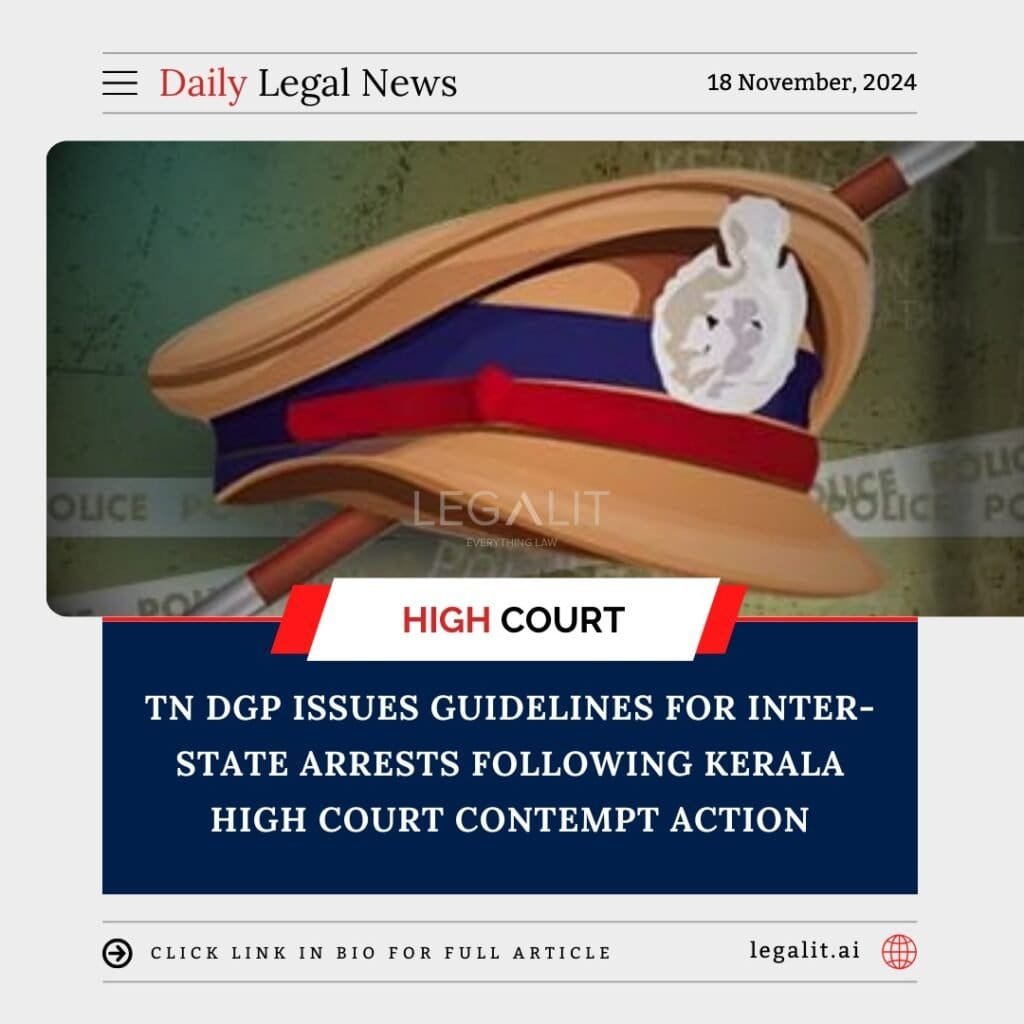
The Director General of Police (DGP) of Tamil Nadu has issued fresh guidelines for conducting inter-state arrests in compliance with the directives of the Kerala High Court, which had earlier initiated contempt proceedings against Tamil Nadu police officers for non-compliance with legal protocols during an inter-state arrest.
Background:
The issue arose when Tamil Nadu police were accused of making an inter-state arrest in Kerala without adhering to the prescribed procedures, including notifying local police authorities and obtaining requisite permissions. The Kerala High Court took serious note of this lapse and initiated contempt proceedings, emphasizing the importance of following legal protocols to ensure inter-state harmony and adherence to constitutional safeguards.
The case highlighted concerns about potential misuse of police powers during inter-state operations and underscored the need for strict compliance with the law.
Key Guidelines Issued by the TN DGP:
- Mandatory Notification of Local Police:
Officers must notify the local police before conducting any arrest in another state. This ensures transparency and prevents jurisdictional disputes. - Obtain Necessary Permissions:
Proper authorization from senior officials and compliance with relevant judicial directives are mandatory before initiating inter-state arrests. - Documenting the Arrest Process:
Police teams must maintain clear records of the arrest, including details of the warrant (if applicable), the charges, and the involvement of local law enforcement. - Protecting Fundamental Rights:
Arrests should be conducted with due regard for the individual’s fundamental rights, avoiding excessive force or procedural lapses. - Training and Sensitization:
Officers involved in inter-state operations will receive special training to ensure they are well-versed with legal requirements and protocols.
Implications of the Guidelines:
- Improved Inter-State Coordination:
These measures are expected to foster better cooperation between states, minimizing jurisdictional conflicts and ensuring smoother law enforcement operations. - Accountability and Transparency:
Clear procedures will enhance accountability among police personnel and reduce instances of arbitrary actions during inter-state arrests. - Preventing Legal Backlash:
By adhering to established protocols, the Tamil Nadu police can avoid future legal controversies and ensure compliance with court orders. - Safeguarding Citizen Rights:
The guidelines aim to protect individuals from procedural violations and ensure their fundamental rights are respected during arrests.
Conclusion:
The Tamil Nadu DGP’s move to issue comprehensive guidelines for inter-state arrests reflects a proactive response to the Kerala High Court’s observations. This development underscores the importance of adhering to legal norms in police operations, fostering better inter-state relations, and ensuring justice and transparency in law enforcement practices.